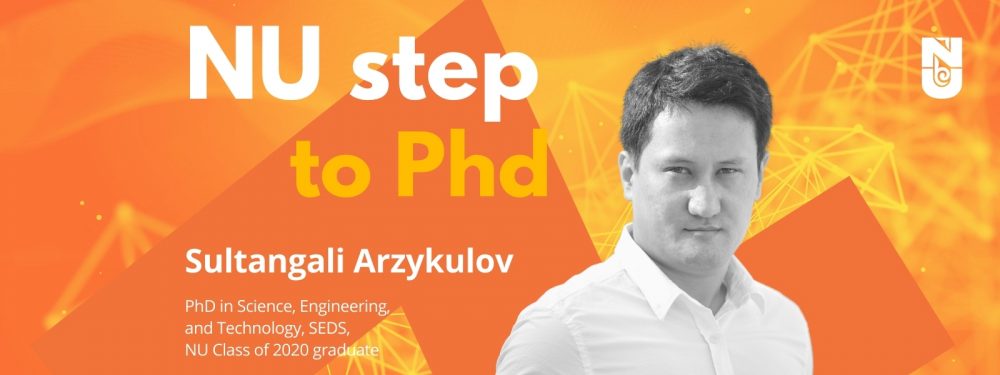‘5G will change people’s lives’
Our next guest of the NU Step to PhD rubric is Sultangali Arzykulov. He graduated from NU SEDS with a PhD degree in Science, Engineering, and Technology in 2020. Today Sultangali works as a postdoctoral scholar at King Abdullah University of Science and Technology (KAUST). His main research interests are 5G and 6G communication networks. Sultangali firmly believes that the development of 5G networks will change people’s lives in unimaginable ways.
Sultangali, please tell us about your PhD years at Nazarbayev University?
During my Ph.D. studies, I did research on the 5G communication network. The research was based on the analytical-theoretical approach. My work revolved around improving data rate and saving energy to meet the 5G requirements in future communication networks.
All findings of my research were published in highly cited IEEE journals, I also participated in the IEEE flagship conferences. These findings are important, as they provide information on maximum achievable data rate and types of system limitations, – things that are essential for engineers.
There are all kinds of misconceptions about 5G networks nowadays. What are its main advantages?
The main benefits of 5G are higher transfer rates, lower latency and, therefore, higher remote execution capacity, which means more connected devices, and the ability to implement virtual networks. 5G can provide up to 100 times faster data rates than 4G. Also, 5G allows a greater number of devices to be connected to the network at the same time.
How can the development of this technology influence our lives?
5G will have a huge impact on people’s lives. We will see some great progress in the quality of life, which will be possible due to 5G. With 5G, self-driving cars, virtual reality, remote surgery, digital agriculture, and industry 4.0 projects will become possible. In addition, 5G will influence virtual reality technologies, which will boost the development of the gaming industry.
Also, 5G will allow further development of various sectors of the economy – industry, transport, energy, agriculture, housing and communal services, medicine, and security. For example, with the development of 4G, mobile technologies and applications such as Facebook, Netflix, Instagram and Snapchat have become global. Now, 5G will definitely bring into our lives even more exciting opportunities.
Sultangali, what would you advise to future PhD students?
I would say that the supervisor plays a vital role during the PhD studies, as he is the main person who will guide you in your research journey. Another important thing is to attend flagship conferences, where you can present your research and get feedback from international experts. Another thing I want to say to future PhD students is to carefully choose the research topic, as doctoral research means a lot of self-studying, so the student should be prepared to work independently.


